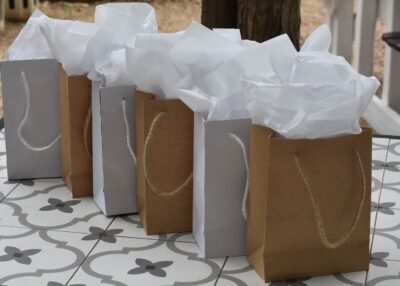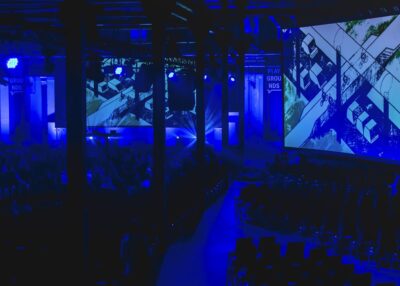Advice From 8 Industry Experts: How to Build a Powerful Brand and Tips for Event Planners
Top experts in their industry share advice on everything from event marketing to planning, and building a powerful brand. Kick off the new year with these insider tips and listen to the full interviews on the EventBuzz Podcast.
Navigate to your topic of choice:
Building a purpose-driven brand
Event marketing trends in 2023
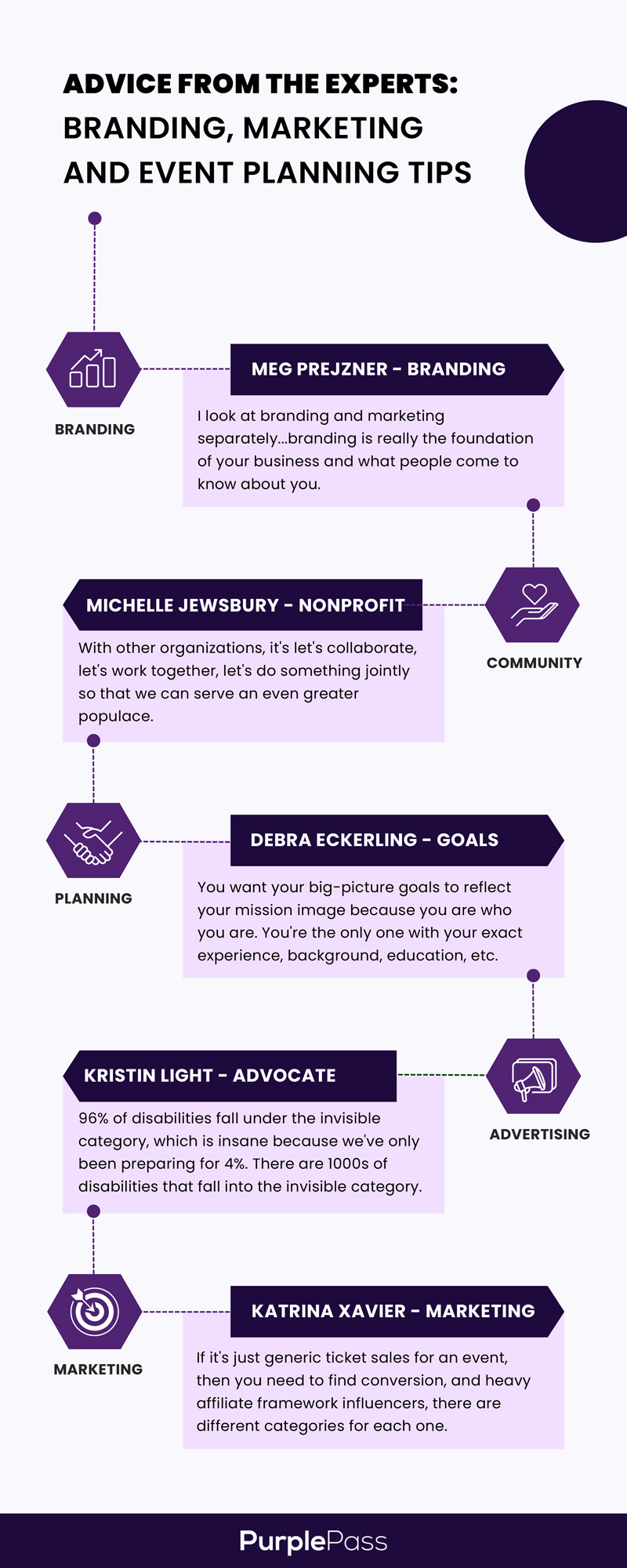
Building a Purpose-Driven Brand
When people start strategizing how to build out either their brand or an event, in our case for the event planners, where do you recommend starting? Because I feel like people across the board all start somewhere different, whether it's starting with goals, finding their target audience, jumping on social media, etc. What would you recommend?
Meg Prejzner - CEO and Founder of Hackett Branding Consulting
#50 - The EventBuzz Podcast (Listen to the entire interview here)
I love that question because I think there's analysis paralysis that happens a lot when people get into marketing, specifically, because you're right, there are dozens and dozens of channels that you can go on and different avenues. And then you kind of go down the rabbit hole of what am I saying? What works best for me? What's my voice? And it kind of goes down this ramble, right?
So you want to pull that back? And I think get back to the foundations and I look at branding and marketing separately. And so for me, the brand is really the foundation of your business and what people come to know about you. And so when you're building a brand, I always say start from the heart. And by that I mean to look inward at why you are throwing an event. And so the brand, the brand could be in an event like a Lollapalooza or you know, something that's really recognizable, or it could be a business like an event marketing business. But when you're building that brand, it's to say, you know, what makes this unique? And that comes from your heart. And so answering the question of why, why am I different? Why did I start this? What's the value that I can bring to people? And what is that impact?
And now I know I kind of rambled five different questions and people here, but I think when you start to peel back the layers, it's like, of course, throw an awesome event, of course, make money doing that, of course, reach the community and the people.
But it goes a little bit deeper than that. And it's why it's like, what is that impact that you want to have? And so I think starting there, you can use that as the guiding light for why it is you do what you do. And then you build on that. And so then when you transition from brand and building a brand, whether again, it's specific to an event that's super branded like Lollapalooza, which is big and everybody knows the name, or you have a local venue or local chapter, and you're like just starting out. You build on that and you build the foundations, and then you start marketing and that's where you kind of get into goals.
And so when we are building marketing plans, everything aligns with goals, because if you don't know where you're going, then you don't really know what to do to get there. And so you may say, hey, we need to get a ton of traffic to our site to make people aware that's going to have different tactics marketing-wise than it is to sell tickets, which may kind of fall into the paid media category, for example. So two answers there.
But I think separating brand and marketing is super important. And then starting from the why, and then making sure when you actually activate, you have those goals wrapped into it.
What tactics do you follow when using events to build awareness around your nonprofit that other organizations could apply as their own strategy?
Michelle Jewsbury - CEO and Founder of Unsilenced Voices
#52 - The EventBuzz Podcast (Listen to the entire interview here)
Well, the biggest advice that I would actually give to other organizations is that it's not the work of one organization that can do everything. I really really am an advocate of coalition and collaboration. And by doing the Blanket of Hope events, it's really made me aware of how many organizations do not want to actually collaborate. And I believe a lot of that is because we all compete for the same grant money.
And unfortunately, some organizations don't realize that there are there is enough money to go around. And we need each other in order to serve the best that we can so things don't fall through the cracks. So with other organizations, it's let's collaborate, let's work together, let's do something jointly so that we can serve an even greater populace. And I think that that is just extremely important and outside of that with other organizations, you know, be open, open your doors, do events, invite people to come out. I know that, especially in the Tampa area where we're looking to start a day center the next couple of years, a lot of what is slipping through the cracks is, you know, like, feeding and activities for training and fun, and things like that.
I went to this community outreach event that had about 20 different other organizations involved. And I learned what was missing. So come in, and don't try to compete, but come in and, and supplement and, and make better the area that you're serving by just filling the spaces that are needed.
Why do you think most people fail or fall short of their goals? And do you have any advice to help them create more attainable goals?
Debra Eckerling - Creator of the D.E.B Method for Goal-Setting
#47 - The EventBuzz Podcast (Listen to the entire interview here)
If you don't know what you're aiming for the big picture. What are you doing? Right? So when you start with the, I love this industry, and I'm building this successful business and I'm doing it through creating events and community or what have you. Great. But what does that mean?
So, let's take it from the business person's perspective of I want to be an expert, great. I'm gonna write a book and start a podcast or I'm gonna create event space, whatever. That's where you do the exploration to figure out okay, what is my best first step? And then work backward, say, okay, well, I want to be a best-selling author, I guess I'd better write a book first right? Write a book, write a book proposal, get an agent, and map out the different steps.
So you want your big picture goals, first of all, to reflect your mission image, because you are who you are, you know, you've got you're the only one with your exact experience, background, education, interactions, the whole shebang right.
And why do you do what you do? What is that driving force? So that's why it's important to start with that visualization of the future and what you need to do to get there. And yes, people fall off the wagon, the goal wagon for a couple of different reasons, you know, they get too busy. They overextend themselves, or they're underwhelmed by what they want to do. I mean, they're more but let's, we'll keep it really, I'd say, highish level. So people don't achieve their goals. Maybe they don't love what they're doing. Okay, take a step back, reevaluate your life, and see what it is you want to be doing. Because you want to be excited about the things that you're doing. Because if you're not excited, it shows if you're excited, it shows, but if you don't love what you're doing, I think it shows even more.
And then the other big problem is people overextend themselves. I want to write a book in a month. And I use a book just because it's a good example, but it could be I want to start a blog in a month, I want to launch my Etsy store, I want to start the greatest event experience for this kind of demographic, whatever it is, I'm going to do it in a month, right?
Working full time, with a family with other obligations. Not going to happen. But if you look at your calendar and say, you know what, I'm pretty busy. But I could pull this off in like four months, by spending a couple of hours a week on the onset. And then as I get closer, the time will build. So the secret is to look at your life, to see what's feasible, and then schedule the time to do the things.
Tips for Event Planners
What are some ways event planners can build more accessible events for a wide range of disabilities and mental health disorders?
Kristin Light - Accessibility Advocate for Disabilities of the Mind
#51 - The EventBuzz Podcast (Listen to the entire interview here)
In terms of the invisible, though, gets a little more complicated because there are 1000s of disabilities that fall into the invisible category. In fact, 96% of disabilities fall under the invisible category, which is insane, we've only been preparing for 4% which is nuts. So and yay for that 4%, I'm glad we're doing that there's still more to do in that area. But when you get into the invisible, I made a long list of things that folks with various invisible disabilities will have to consider when looking at an event and whether or not to even attend it. And on the physical side of invisible disabilities, physical side, we could be looking at anything from rheumatoid arthritis to M.S., Crohn's, chronic pain conditions, and diabetes, and they could still be looking at mobility for themselves availability of seating. Is it general seating?
And when we get into the mental and neurological side even more things like audience participation requirements, is there social networking in person or afterward or before are there requirements for networking? Background noise color, this one's super interesting, whether it's white noise, brown noise, green noise, or pink noise, different people will respond differently. And for some, it may only be a minor inconvenience for others it can actually cause physical pain.
So these are things to consider overall noise volume, is it harsh or low lighting? Some conditions come with photophobia, which certain types of lighting can cause again, actual pain.
Are there quiet break spaces where they can be some people can escape if they just need to recharge the batteries themselves for a few minutes?
The soonest you can put out a full schedule, the better. Even if you don't have let's say all of your speakers planned or all the specifics. If the sooner you can put that schedule out the better that shows what like timer doors versus when is the event itself. One there networking breaks? Because for some folks, it's a case of managing energy throughout the day as well. Mental energy, physical energy, and knowing how many breaks there are in a day, or what is the walking to trade show for part of it. That can be helpful.
A venue map. It's amazing how many events don't release menu maps. You see it for trade shows. But beyond that, not very often. And again, for some folks, knowing where the washrooms are knowing where the benches receding are, knowing where quiet spaces, might be if they have support animals, where they can take them because they have gotta pee, too. So knowing where to go during the event, where the drop-off, is outside for transit, as well as parking. These are all things to keep in mind.
And then I just want to throw out a couple of quickies here. When you're building let's see a website, to for your events put as much of the text as you can, which I hope is all of it in the actual text, so not flattened into an image. And the reason for that is for screen readers. And for anyone that may be visually impaired. The screen readers are really great nowadays, but they're not as consistent with picking texts up that's been flattened into a JPEG. So if you have this great JPEG of an event flyer, and you just stick that on your registration page and call it done. That's not going to be very accessible.
And the other big tip I give people in terms of very varying degrees of visual challenges, color blindness, etc. Can your images be printed in black and white and still be discerned? You can find charts that say what color text over what color background, etc, etc. And that gets really annoying. Just print that sucker.
What are some of the biggest challenges you deal with when it comes to destination event planning, and maybe some tips or strategies that you could give to our listeners?
Valerie Bihet - Founder and Director of the Vibe Agency
#48 - The EventBuzz Podcast (Listen to the entire interview here)
I would say you need to have a strong network. I have been lucky because when I used to work for Clement, as I mentioned before, on this day, I was traveling a lot in a lot of countries in a lot of cities, and I build my network. Then I manage my network. I continue to have relationships with a lot of people, even sometimes if I didn't talk to them in four or five years when I called them they are here for me they remember what we have done before in the past together. They remember stories, they have memories and they are willing to help you.
And when you work in destination events you need to know the culture of the country. So you need to have goodwill ship with the people, the network. And you need to be, I would say very turnkey solution oriented. And as of today, right now, the thing is that you need to have all that because you need to turn in proposals very quickly, much more than before, which is crazy.
You also need to be ahead of your industry and look for what are the next destination that will be trendy. Look, for example, sometimes the route in the travel industry, because when American Airlines, Air France, Delta or any Airlines is starting to open new routes, it means that the destination will become popular, otherwise, there is no way for them to open new airlines, new routes. Know what I mean? So then in that case, start to start to build your network in the city. If you have not been there, we are all in the travel industry, travel agents and everything because we all normally are even planning, but we are also IATA number and travel, meet people, read magazines, watch movies, and watch the news. Try to do this type of work and then start to talk about those destinations that you have been educated to your clients.
Do you have any top tips that you would suggest for first-time planners coordinating public walking tours as their tasting events?
Victoria Kichuk - Founder and Chief of Cocoa Beantown Tours and Events
#46 - The EventBuzz Podcast (Listen to the entire interview here)
I think food tours and public walking tours, especially when you're visiting other businesses, I think the thing that people most wonder about because I get the question from some of the tour guests occasionally. But I know that other folks who have an interest in business or perhaps you know starting something in their town or area is that how do you work out the compensation situation with the businesses that you're working? And because some people assume, oh, well, maybe you're getting everything for free, because it's marketing for the restaurants because you're bringing potential customers or making sure they're aware of these other businesses.
So maybe you're getting everything for free or discounted. I know that there are some food truck companies that specifically ask for that, like approaching a business to say, hey, we'd love to work with you. If you want to work with us, you have to give us the food samples for free because we're providing you this benefit of the help you know, advertising and getting aware, and bringing them into your shop or store.
I myself, don't feel comfortable assuming that everyone is able to write off food sampling as a business expense or marketing expense. Especially coming out of a pandemic, when restaurants were in that are still struggling. I mean, we have one set, you know, close here still that say that we we were trying to catch up, but it's just it's not going to have that. And places that some of them. I mean, we're excited to be reaching five years, but in the restaurant, worlds to reach five years is, like the pinnacle, nevermind places that maybe have been in business 15 years and having to close down because of this situation. It's, it's awful.
So I have always, whenever I've worked out partnerships with folks, I always make it very plain that I am comfortable with what they're comfortable with. And I think you just have to, because if your business model is built on, well, we have to get this stuff for free, then buy rights in my mind, you are you it's not an equal partnership, because they have the right at that point to tell you like we just can't afford this anymore. And so we can't work with you anymore, you're off the tour. And that problem cropping up on a surprise, like intermittent, you know, could happen at any point, just like a business can close at any point. I think that's a lot riskier to have to potentially deal with at any point, than just saying to folks, okay, maybe we work out like we pay your wholesale costs, or, or can we control portion size, and that mitigate costs a little bit? Like there are all different ways to work it? And I think that some food tours really approach it as like, well, the vendors need, excuse me, the vendors need us way more than we need them. And that's not the case. Because if you don't have anyone that wants to work with you, you don't have a food tour.
Event Marketing in 2023
Should events partner with an influencer? What are the benefits and/or drawbacks of working with influencers for event marketing?
Katrina Xavier - Founder of influencer marketing agency, Blitz Marketing
#53 - The EventBuzz Podcast (Listen to the entire interview here)
So there are two pieces when it comes to an event, there's if you're going to do it in the long run and do it multiple times, then yes, influencer marketing is a huge piece. Especially for example, if you are doing an event, and you're gonna run it again next year, all of that content that influences like produce in real time until you sell into the next event. And that we find with clients does really well. And then another piece is ticket sales using influencers. So you lobby them in a large space, um, to help convert the event. Convert for the event, and the public does the rest.
Influencers are promoting a lifestyle. And so it's really architecting, depending on what your event is, you have to find the arch type that their audience would represent, that would be your audience as well. So make sure you're finding influencers, for example, if you're running a home and garden event, then you're gonna want to find outdoor influencers or lifestyle influencers that have a beautiful garden and have been interacting with people or if you're running a nightclub event, don't go and get someone who doesn't create content around that, because their audience wouldn't match.
If it's just generic ticket sales for an event, then you need to find conversion, and heavy affiliate framework influencers, there's different categories for each one. Also, if you're doing a localized event, then you need to double-check and maybe partner with nano creators whose audiences are a little bit more geo structured. And then also, if you're running like a Burning Man, then you want to then go into the category of like, who is this specific audience? Where are they located? And how can you create this idealistic buzz around it? Oftentimes with a Burning Man, it's once an influencer attends Burning Man, then the next year, people are going to want to go to Burning Man, because they saw their favorite influencer going and Burning Man. You're creating that association of people like me doing this.
Where or how should businesses start building their marketing strategy? There are so many avenues and directions to go, how do you know where to begin or what to start with or what is necessary for that business type?
Channing Muller - DCM Communications
#44 - The EventBuzz Podcast (Listen to the entire interview here)
Marketing does not have to be complicated in order for it to be effective. Okay, if you have a 20-person plus marketing team, whether for your event or for your company, by all means, do all the things that are out there as recommendations, right? Do the blogging, do the email. Do social media management on a regular basis. Like all the things.
But the reality is that that is not the case for most people, particularly also those in the event industry, even some of the biggest, you know, companies don't have 20 People just for marketing. So don't get caught up with doing all the things, find the few channels that are the most effective for you, and do those and forget the rest of it. Right? You don't have to have 25 layers to every marketing campaign in order for it to work.
And the more you get overwhelmed by it, it really does bring into those mental blocks, and then the creativity is going to get stifled or the effectiveness of the copy is not there. Right? Marketing does not have to be complicated in order to be effective. does not mean that it is always the easiest thing ever to create. But it doesn't need to be overly complicated. Right? Focus on your main message talking to your ideal client only. Forget all the crap.
What pointers do you have for building a brand and increasing overall awareness among consumers?
Meg Prejzner - CEO and Founder of Hackett Branding Consulting
#50 - The EventBuzz Podcast (Listen to the entire interview here)
The most common thing that I see with branding issues is not showing up consistently. And that could be a couple of factors. So once consistently in your brand, maybe your brand visuals, your brand voice, what you're telling that story about your brand is all over the place, and you're kind of ping bombing people around. It takes eight times of seeing a brand before people start to recognize it.
And so if you can imagine that you're like changing your fonts and your colors, and your voice and your story and your purpose and your mission so much, that every time they see you, that becomes almost a new brand and you're starting from scratch.
And so you definitely want to show up consistently.
But the other side of consistency is routinely right. So not just consistent in your brand voice look and feel, but in your marketing, you want to make sure that you are showing up regularly, we all we'll get those emails where it's been a year since you've heard from someone and you're like, holy cow, I forgot that I signed up for this email newsletter, I'm just going to unsubscribe from that. Like, it's more of like a prompt to disrupt your day versus if you're hearing from someone regularly. And you're following this journey and story from them, whether that's on social media or public relations or email, you become more attuned to what they're saying and you receive that information more regularly, more consistently. And so I think that is, number one, start there with your brand and how to show up for people in that manner.
Expert Profiles

Meg Prejzner
CEO and Founder of Hackett Branding Consulting

Michelle Jewsbury
CEO and Founder of Unsilenced Voices

Debra Eckerling
Creator of the D.E.B. Method for Goal-Setting
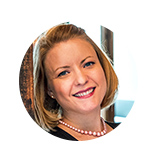
Kristin Light
Accessibility Advocate for Disabilities of the Mind

Valerie Bihet
Founder and Director of the Vibe Agency

Victoria Kichuk
Founder and Chief of Cocoa Beantown Tours and Events

Katrina Xavier
Founder of Blitz Marketing, an influencer marketing agency
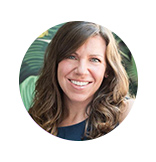
Channing Muller
Principal at DCM Communications





